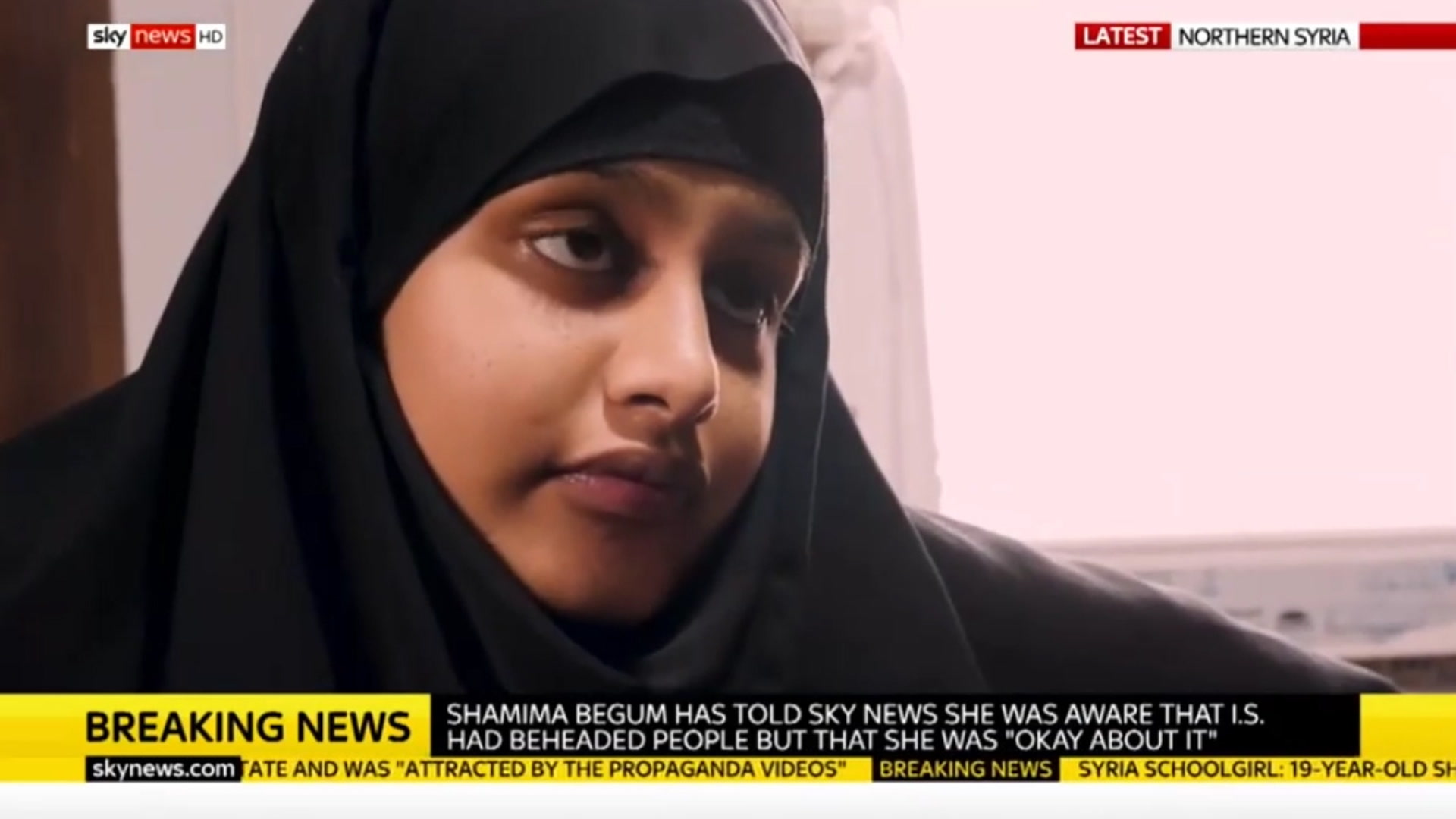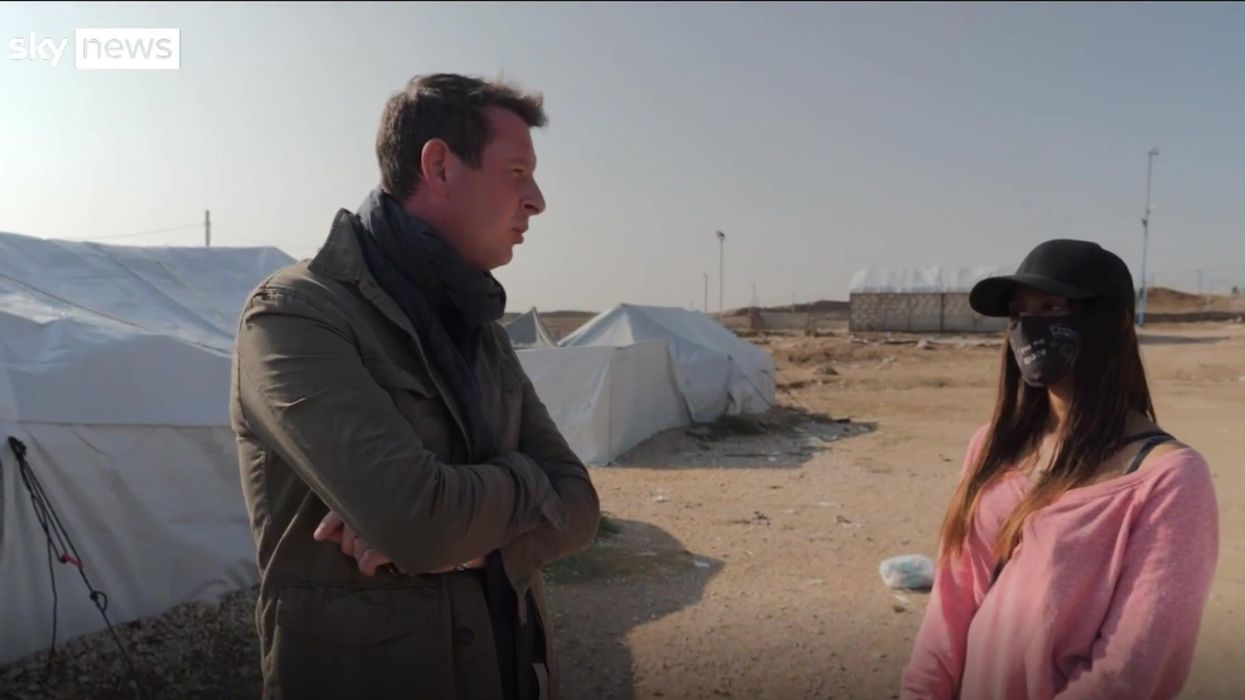Sinead Butler
Jan 11, 2023
Shamima Begum insists she 'didn't hate Britain' and now wants to face …
Sky News
Shamima Begum, who fled the UK as a teenager to join the Islamic State (IS), has offered a window into her life in a new BBC 10-part podcast series.
In episode one ofThe Shamima Begum story, the 23-year-old revealed how she made the journey to Syria as a 15-year-old along with her school friends Kadiza Sultana, 15, and Amira Abase, 16 in 2015 to join the terror group as a bride.
Begum resurfaced in 2019 at a refugee camp and was stripped of her British citizenship on national security grounds by the-then home secretary Sajid Javid, banning her from returning to the UK.
She has since legally challenged the British government about this decision but still remains in the Syrian camp.
Sign up to our free Indy100 weekly newsletter
Now, Begum has shed more insight into her past decisions and current living situation with host Josh Baker. Here are the seven things we learned from the podcast's first instalment:
She blames the media for her portrayal as a 'danger'
During the podcast, Begum insisted that she is "not a bad person" and isn't the threat people perceive her to be.
She noted how people see her as "a danger, as a risk, as a potential risk to them, to their safety, to their way of living," but stressed: “I’m not this person that they think I am being perceived as in the media, you know I’m just so much more than Isis and I’m so much more than everything I’ve been through.”
“I’ve always been a more secluded person. That’s why it’s so hard the way my life has turned out being all over the media because I’m not a person that likes a lot of attention on me."

She understands the public's anger
Begum also explained how she understood the public's anger towards her: “I don’t think it’s actually towards me. I think it’s towards Isis. When they think of Isis they think of me because I’ve been put on the media so much.”
How she got prepared for her trip to Syria
Before travelling to Syria, Begum detailed how she was given "a long list of detailed instructions" by "people online telling us and, like, advising us on what to do and what not to do". This included a cover story to use in case they were caught.
She also looked up Turkish phrases that she would need in order to cross the border over to Syria.
Her family's reaction
Begum described how her family were shocked by her actions, saying they "thought I was too, like, weak to do something so crazy, so they did not think in a million years I could do that."

How she travelled to Syria
The now 23-year-old provided details on her journey to Syria and noted how, although she packed lightly, she was also reminded that she'd need to impress her new husband.
“People used to say, like, ‘pack nice clothes so you can dress nicely for your husband," she said.
She also revealed that she packed lots of chocolate bars for the journey which included "about 30" mint Aeros since she wouldn't be able to buy them over in Syria.
“You can find a lot of things in this country, but you cannot find mint chocolate,” Begum said.
She claims a shopping list found at her house wasn't hers
Tasnime Akunjee, a lawyer who represented the girls’ families shared on the podcast that he searched their rooms after they ran away and noted how he'd "never seen anything so thoroughly dry-cleaned of evidence or information as these young teenagers managed to do themselves."
The only item he found at Begum's house was a shopping list, detailing items needed for their move to join the so-called IS caliphate, and the cost: a phone for £75, socks for £4, taxi for £100 – with a name or an initial of one of the girls next to each.
However, Begum denied the shopping list was hers, adding: “We tried so hard to clear up our tracks and just one of us was stupid.”
The refugee camp is "worse than prison"
Begum described the al-Roj camp in northern Syria where she now lives as "worse than prison."
"This is, I feel, worse than a prison I think it’s because at least with prison sentences you know that there will be an end but here you don’t know if there’s going to be an end," she said.
The Shamima Begum Story podcast is now on BBC Sounds.
Have your say in our news democracy. Click the upvote icon at the top of the page to help raise this article through the indy100 rankings.
Top 100
The Conversation (0)














